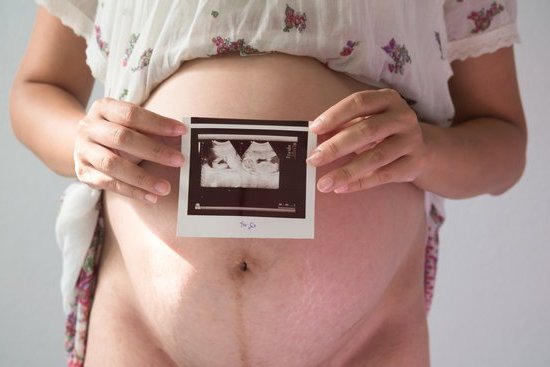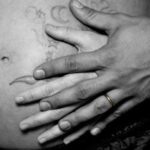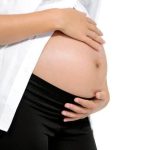Pregnancy is a life-changing experience for many women, and it often comes with a range of physical changes and symptoms. One of the commonly discussed topics among expectant mothers is the connection between early pregnancy and digestive issues. In particular, many women may wonder, “Can early pregnancy cause diarrhea?”.
During the early stages of pregnancy, women may experience a variety of symptoms that result from hormonal changes and the body’s preparation for supporting the growing fetus. While nausea and fatigue are well-known symptoms, digestive issues such as diarrhea are also possible indicators of early pregnancy.
It’s important for expectant mothers to understand these potential symptoms and their causes in order to properly manage any discomfort and seek appropriate medical attention when needed. In this article, we will explore the relationship between hormonal changes and digestive problems in early pregnancy, including the potential link between diarrhea and pregnancy. Additionally, we will provide tips for managing digestive discomfort during early pregnancy and discuss when it is necessary to consult a doctor for diarrhea during this stage.
Common Pregnancy-Related Digestive Issues
Pregnancy brings about a multitude of changes in a woman’s body, and one of the lesser-known aspects is the impact it can have on the digestive system. Common digestive issues during pregnancy include constipation, indigestion, bloating, and yes, even diarrhea. These symptoms can be attributed to hormonal changes and the physical pressure that the growing uterus places on the bowel.
Hormonal changes play a significant role in causing these digestive issues during pregnancy. The rise in progesterone levels can lead to relaxation of the muscles in the gastrointestinal tract, slowing down the digestion process and leading to constipation or indigestion. Additionally, the hormone relaxin also contributes to these issues by relaxing the muscles throughout the body including those in the digestive tract.
Diarrhea during early pregnancy can also be a result of heightened stress or anxiety about being pregnant. Many women experience a range of emotions when they first find out they are expecting, which can lead to stomach discomfort and diarrhea. It is essential for expectant mothers to manage their stress levels through relaxation techniques and seeking emotional support from their partner, family members, or healthcare providers.
| Pregnancy Symptom | Description |
|---|---|
| Constipation | This is a common issue due to hormonal changes that slow down digestion. |
| Indigestion | Hormonal fluctuations during pregnancy often lead to this uncomfortable symptom. |
| Bloating | The physical pressure on the bowel from the growing uterus can cause bloating. |
Link Between Hormonal Changes and Digestive Problems
During early pregnancy, hormonal changes can have a significant impact on the digestive system. The surge in hormones like progesterone can relax the muscles of the digestive tract, leading to slower digestion and potential constipation. Additionally, these hormonal fluctuations can also affect the production of stomach acid, causing symptoms such as heartburn and indigestion.
The link between hormonal changes and digestive problems is further supported by the fact that many women experience gastrointestinal issues during their menstrual cycles due to similar hormonal shifts. These changes in hormone levels not only influence bowel movements but can also lead to bloating, gas, and general discomfort in the abdominal area.
To help manage these digestive issues during early pregnancy, it’s important for women to be mindful of their diet and eating habits. Consuming smaller, more frequent meals throughout the day can help alleviate some symptoms by reducing the workload on the digestive system. Additionally, staying hydrated and incorporating fiber-rich foods into the diet can help regulate bowel movements and prevent constipation.
Some pregnant individuals may find relief from these symptoms by engaging in gentle physical activity or practicing relaxation techniques such as deep breathing or prenatal yoga. However, it’s crucial for pregnant individuals experiencing persistent diarrhea to consult their healthcare provider for proper evaluation and guidance.
Diarrhea as a Potential Early Pregnancy Symptom
Pregnancy brings about various changes in a woman’s body, and digestive issues are not uncommon during this time. Diarrhea is one such symptom that can occur in early pregnancy. Some women may experience diarrhea as a result of the hormonal changes taking place in their bodies. The surge in hormones such as progesterone and relaxin can affect the digestive system, leading to symptoms like loose stools and diarrhea.
While not every woman will experience diarrhea as an early sign of pregnancy, it is important to be aware of this possibility. Diarrhea can occur due to multiple factors during early pregnancy, including dietary changes, prenatal vitamins, and increased stress levels. It is essential for expectant mothers to pay attention to their body and observe any unusual symptoms they may be experiencing.
If you are pregnant and wondering about the connection between early pregnancy and diarrhea, it’s crucial to differentiate between normal digestive discomfort and potential signs of a more serious issue. It is always recommended to consult with a healthcare provider if you have concerns about your health or the well-being of your baby.
| Early Pregnancy Symptoms | Common Digestive Issues |
|---|---|
| Nausea | Heartburn |
| Fatigue | Constipation |
| Breast Tenderness | Bloating |
| Frequent Urination | Diarrhea (as potential symptom) |
Tips for Managing Digestive Discomfort During Early Pregnancy
During early pregnancy, many women experience digestive discomfort such as bloating, constipation, and yes, even diarrhea. It is important to remember that these symptoms can vary from woman to woman and can also change with each pregnancy. If you are experiencing diarrhea during early pregnancy, here are some tips for managing this uncomfortable symptom:
1. Stay Hydrated: Drinking plenty of water can help to prevent dehydration caused by diarrhea. Dehydration can be dangerous during pregnancy, so it is important to ensure you are getting enough fluids.
2. Eat Small, Frequent Meals: Instead of three large meals a day, try eating smaller meals more frequently throughout the day. This can help to ease digestion and prevent exacerbating any digestive discomfort.
3. Avoid Trigger Foods: Certain foods may trigger diarrhea or worsen digestive issues. Spicy foods, fatty foods, and dairy products are common triggers for digestive discomfort in pregnancy. Pay attention to how your body reacts to different foods and avoid those that seem to cause trouble.
Remember that if you are experiencing severe or persistent diarrhea during early pregnancy, it is important to consult with your healthcare provider. While mild digestive issues are common in early pregnancy, persistent diarrhea could be a sign of an underlying issue that requires medical attention. Take note of any other symptoms you may be experiencing and communicate them clearly with your doctor for proper guidance and care.
When to Consult a Doctor for Diarrhea During Early Pregnancy
Monitoring Your Symptoms
It is important to pay attention to the frequency and severity of diarrhea during early pregnancy. While occasional episodes of diarrhea can be normal due to hormonal changes, persistent or severe diarrhea may indicate an underlying issue that requires medical attention. Keep track of your symptoms, including the duration of diarrhea, any accompanying symptoms such as vomiting or fever, and whether you have noticed any blood in your stool.
Seeking Medical Advice
If you are experiencing frequent episodes of diarrhea that last for more than a couple of days, it is advisable to consult with your healthcare provider. Additionally, if you are unable to keep fluids down or if you notice blood in your stool, seek medical assistance immediately. Your doctor can evaluate your symptoms and determine the underlying cause of your digestive issues.
Exploring Possible Causes
During your consultation with a healthcare professional, they can assess whether the diarrhea is related to early pregnancy or if there may be another explanation for your symptoms. In some cases, diarrhea during early pregnancy may be attributed to factors such as food poisoning, a stomach virus, or other gastrointestinal conditions. It is important to communicate openly with your doctor about your symptoms so that they can provide appropriate guidance and treatment options.
Other Possible Causes of Diarrhea in Early Pregnancy
During early pregnancy, diarrhea can be caused by factors other than hormonal changes and increased progesterone levels. It is important to consider these other potential causes when experiencing digestive issues in the early stages of pregnancy.
Food Sensitivities and Allergies
Some women may experience diarrhea during early pregnancy due to food sensitivities or allergies. The body’s immune system changes during pregnancy, which can make women more sensitive to certain foods that they were able to tolerate before. In some cases, certain foods may trigger diarrhea as a result of an allergic reaction or intolerance.
Gastrointestinal Infections
Another possible cause of diarrhea in early pregnancy is a gastrointestinal infection. Pregnant women can be more susceptible to bacterial or viral infections that affect the digestive system, leading to symptoms such as diarrhea, nausea, and abdominal pain. It is important for pregnant women to practice good hygiene and food safety habits to reduce the risk of developing a gastrointestinal infection.
Dietary Changes and Supplements
Pregnancy often brings about changes in dietary habits and an increase in prenatal vitamin and mineral supplements. These dietary changes and supplements can sometimes contribute to digestive issues, including diarrhea. It is important for pregnant women to maintain a well-balanced diet and discuss any necessary supplements with their healthcare provider to ensure that they are not inadvertently causing digestive discomfort.
Being aware of these possible causes of diarrhea in early pregnancy can help women better understand and manage their digestive symptoms. If experiencing persistent or severe diarrhea, it is important for pregnant women to consult with their healthcare provider for proper evaluation and appropriate management.
Conclusion
In conclusion, early pregnancy symptoms can vary greatly from woman to woman, and digestive issues are not uncommon. It is important to pay attention to your body during this sensitive time, as it may signal the presence of a new life within you. While diarrhea can be one of the potential early pregnancy symptoms, it is essential to consult a doctor if it persists or is accompanied by other concerning symptoms.
Hormonal changes during early pregnancy can affect the gastrointestinal system, leading to discomfort and digestive problems. It is crucial for women experiencing these symptoms to find ways to manage the discomfort. This includes making dietary changes, staying hydrated, and getting plenty of rest.
It’s important to remember that while diarrhea can be a possible symptom of early pregnancy, there are also other potential causes. Therefore, it’s always best to seek medical advice if you have concerns about any unusual symptoms or discomfort you’re experiencing. Overall, being mindful of and taking care of your body during early pregnancy is vital for both maternal and fetal health.
Frequently Asked Questions
What Are the Early Signs of Pregnancy?
The early signs of pregnancy can vary from woman to woman, but common indicators include a missed period, breast tenderness, fatigue, nausea or vomiting (morning sickness), and frequent urination.
What Are the Symptoms of 1 Week Pregnancy?
During the first week of pregnancy, many women may not experience any symptoms at all. However, some may notice light spotting, mild cramping, or breast changes such as tenderness or fullness.
What Foods Cause Diarrhea During Pregnancy?
Certain foods that can cause diarrhea during pregnancy include spicy foods, greasy or fatty foods, dairy products for those who are lactose intolerant, and certain artificial sweeteners. It’s important to listen to your body and avoid foods that seem to trigger digestive issues.

Welcome to my fertility blog. This is a space where I will be sharing my experiences as I navigate through the world of fertility treatments, as well as provide information and resources about fertility and pregnancy.





